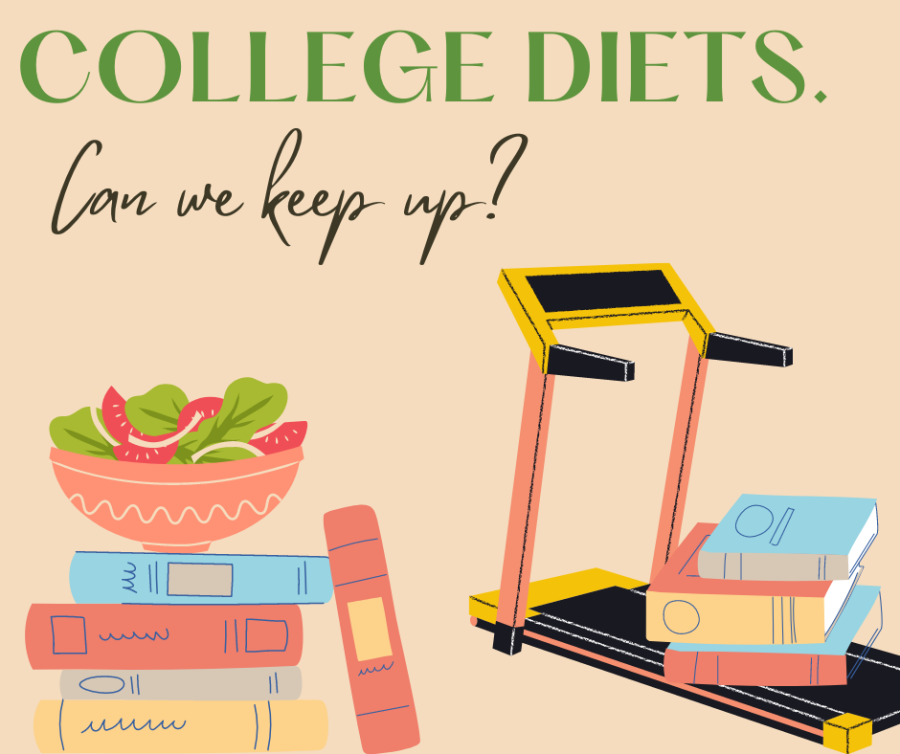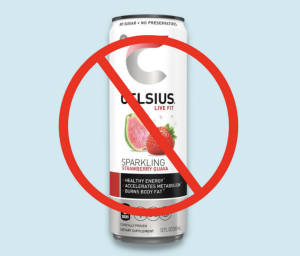Freshman 15
September 28, 2022
~TRIGGER WARNING: BODY IMAGE AND EATING DISORDERS~
Growing up in a social media fueled generation allows many young people to be riddled with comparison at every turn. This is especially true when speaking of college students, whose lives are so affected by the pressures from society being driven home by the constant appearance of social media.
For most, the transition into college can prove to be very challenging and a complete 180 from their lives in high school. On top of a new gained independence, students must learn how to regulate their new lifestyles, find time for school, health and social lives. Sadly, society places an unrealistic goal of staying the same size as you were in high school on these students. This goal of looking the same, should never trump the new life experiences, opportunities, responsibilities and academic agenda that already plagues college students.
“When I was in high school, I was a completely different person mentally than I am now. College is meant to be the time when you grow mentally so why are we shamed upon for growing physically. I would never trade my body and mind now for the one I had when I was 17.” Said Anna Bloess, 4th year nursing major
Freshman 15 is a terminology that many students hear before even enrolling or choosing their desired universities. As for me, I knew it to be frowned upon as something that many of my family members went through. Unfortunately, in many senior letters I received, instead of giving me life advice on how to survive college, I was given a health manual on how to stay skinny. This normalized rhetoric of looking different or gaining the freshman 15 can take a toll on mental health, possibly leading to eating disorders and/or an unhealthy relationship with food.
Instead of learning to understand that a growing body endures normal changes in size with age, students learn how to look their best, neglecting feeling their best. The social media presence offers harmful advertising of diets and weight loss plans rather than the advertisement of the “silent disease” that plagues many college students. According to The Mercury News, 35% of normal eaters progress into pathological dieting and 20-25% of those individuals develop disordered eating.
Social media promotion of diet pills, detox teas, juice cleanses and unhealthy digestion gummies have become the rage on many apps like TikTok. These accounts have accrued a following of many students looking to live this “perfect” lifestyle that has been sold to them so well. Instead of seeing through photoshop, warped angles and unachievable standards, many students see themselves as “wrong” for not accomplishing their desired appearance. The unfortunate and hidden truth behind many of these health and fitness accounts comes down to the wealth of these content creators in that they can afford personal trainers, nutritionists and private chefs to help maintain these appearances.
Disorded eating affects the entire population regardless of race, gender, age, ethnicity, socio-economic status, weight and body size. This illness is not chosen and is something that affects many students on a vulnerable level. Instead of idolizing these fake influencers, let’s work together to raise awareness, education, research dollars, and access to life-saving treatments to target the mental health of students struggling with these awful diseases.
If I have learned anything as a fourth-year senior, I have learned that our bodies are machines. They are machines that must be fueled in order to perform our day-to-day lives. Our bodies are beautiful, and they are OUR OWN to take care of. While it is important to maintain a healthy lifestyle, it should never be done at the expense of your mental health.
If you find yourself relating in any way to the topics above do not hesitate to reach out to your friends, family and the resources provided on campus.
You can find resources at gcsu.edu/gcmentalhealth







